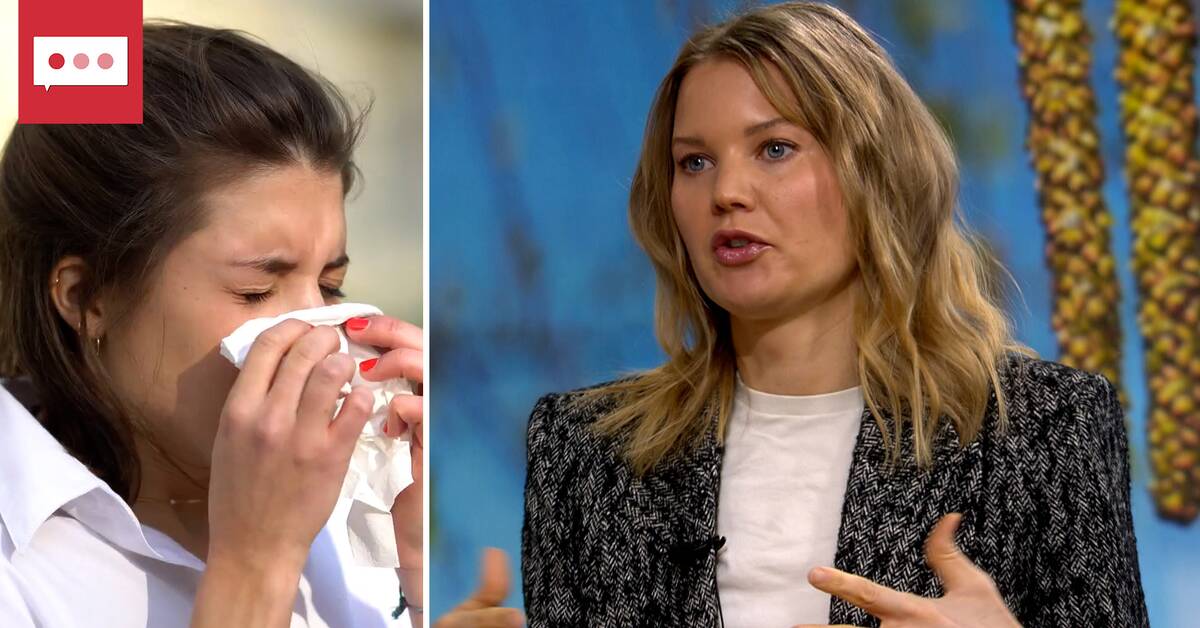Pollen allergy affects many people this year and it seems that more and more people are suffering from the typical ailments.
- They have done the type of surveys where you ask people so that they themselves can report whether they experience this type of problem, and there you see an increasing trend.
But also more objective measures have shown a similar trend, says Emma Frans, doctor of epidemiology, in SVT's Morgonstudion.
The cooler weather of recent weeks with rain and snow has had a certain dampening effect, but as the sun and heat look ahead, a period begins that is difficult and stressful for many pollen allergies.
- This is believed to be due to various factors.
One factor that is often noticed is that we have milder summers due to climate change, says Emma Frans.
Several reasons
Today, about one in four adult Swedes is allergic to pollen.
- Allergies are so-called complex diseases.
There are a number of different types of factors that interact to develop this.
It is partly about genetic factors, partly about things that you are exposed to in your childhood, says Emma Frans.
The treatment methods for treating pollen allergy are many.
Antihistamine tablets are the basic treatment, while different types of nasal sprays and eye drops are often used for local ailments.
- Something that is also researched a lot is allergy vaccine.
It is a type of immunotherapy that can mean that you get less problems.
Examines new methods
The treatment method means that you expose the body to the substance to which you are allergic for a longer period of time, Emma Frans explains.
- Allergies are about the body's immune system somehow overreacting to a substance that is not really dangerous to us.
The task of the immune system is to protect ourselves against substances that can make us sick, but what happens here is that we defend ourselves against something that is not actually dangerous.
The vaccine is given via injections as well as in tablet form.
In the future, another approach may be relevant.
- This is a topic that is being researched right now.
For example, they have looked at being able to inject these substances into the lymph nodes and thus be able to cope with the treatment in two months, says Emma Frans.

